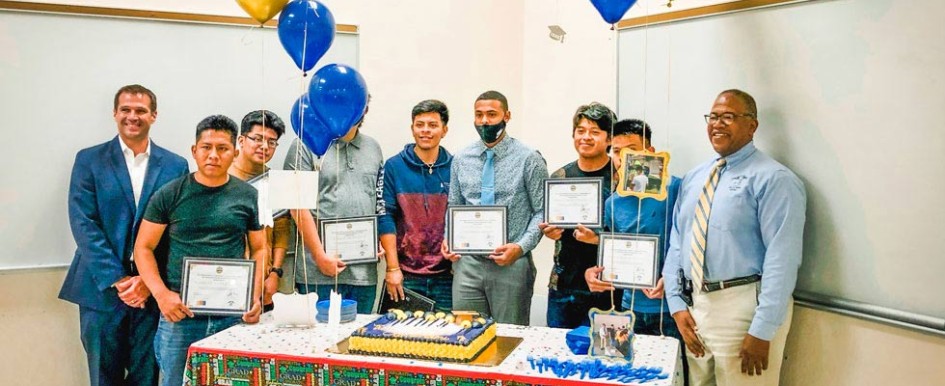
The skilled labor shortage is nothing new for construction, but as that issue expands to other industries — compounded by supply issues — contractors must look for ways to proactively tackle the shortage and shore up not only their own business plans, but also enrich the industry for the future.
Skanska USA Senior Project Manager Bob Kramer is doing just that in southwest Florida by creating construction training and mentorship programs for construction veterans and newcomers alike.
Most recently, he led an 8-week program to provide subcontractors with training, development and partnership opportunities to help companies in the Tampa Bay region grow and become more successful with competitive bidding processes. Additionally, Kramer has created programs to increase skilled labor participation in the construction industry across Florida by targeting graduating seniors, college-age students and adults seeking to enter the industry through the Train to Gain and Construction Readiness programs. CBO caught up with Kramer to discuss the programs he’s running to combat the skilled labor shortage and build up the Sunshine State.
CBO: What do you think are the primary causes of the skilled labor shortage?
BK: One of the causes is the growth of the economy, especially in southwest Florida. Since 2014, there’s been an explosion in growth of both residential and nonresidential projects in the area. A lot of companies are relocating to Florida and that creates a lot of demand for quality construction. People want to come to Florida and that means more facilities must be built to accommodate them. One of the things we try to do is educate everyone on the kind of careers you can have in construction. The potential for what you can become in the industry is endless.
CBO: How is Skanska handling recruiting & training newcomers to the industry?
BK: At Skanska we have these programs in place to focus on educating folks on these careers. We recruit at college job fairs and host information sessions at universities to show the students what kind of company Skanska is.
We try to give them a look into what a day at the company is like. We also have a summer internship program where students can work on our jobsites and in our offices. The number of internships that turn into full positions is amazing. I was an intern in 2002 and now I’m still here 19 years later.
CBO: Tell us about the training programs you’ve created for Skanska in Florida.
BK: The Skanska Construction Building Blocks program helps smaller subcontractors and businesses with their bidding processes. Just trying to help them understand bids a little better. It’s an 8-week program hosted by Skanska team members from multiple areas and departments including preconstruction, operations and field teams that helps college students get a better grasp on the industry and what career paths it offers.
Another program I worked on was in partnership with the city of Fort Meyers that is focused on the shortage of workers. The need for labor is at an all-time high across the state. This was an 8-week program as well that let anyone interested in the industry in to learn about construction principles — including working with tools, going over basic safety protocols and more. At the end of the class, the participants could apply for jobs with our various trade partners that helped teach the courses.
The Train to Gain program partnered with Lee County schools to allow students to come after classes twice a week and learn about the trades. This was focused on finding jobs for graduating high school seniors that were not planning to go to college.
We provided speakers and hands-on instructions. When the seniors graduated from school, they also graduated from the program and had the opportunity to apply for jobs with our trade partners — 10 seniors graduated from the program in 2021.
These kids wanted to be there and showed up every time. It was a good success and Lee County schools wants to meet and see if we can expand to offering the program to multiple high schools. It was a great success and will likely be expanded as we come out of the pandemic and restrictions on the students are lifted.
CBO: How do you see the industry evolving in 2022?
BK: Coming out of the pandemic, I think more attention is being made to the planning side. Skanska has always spent a lot of effort on the preconstruction phase.
I think hiring the right people to plan the project will be essential to dealing with workforce and supply chain issues that we are dealing with.
Forecasting the cost of materials as they continue to rise will be a factor as well. Being able to forecast construction costs will be important in the new year.
CBO: What is your best piece of advice to help project managers to keep a job on track?
BK: Communication is key — especially within your own team on a job. We have regular communication meetings to keep everyone up to date. But it’s not just about internal team communications, keeping your workers on the ground is just as important, loop them in.
And of course, talking to vendors supplying materials on your projects so you can plan your projects accordingly is a requirement. You don’t want to be stuck waiting on roofing materials for a roofing job — especially if you could be waiting for weeks.
